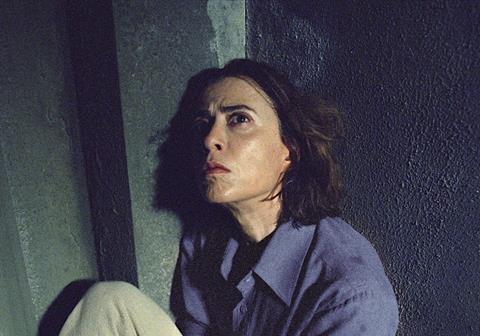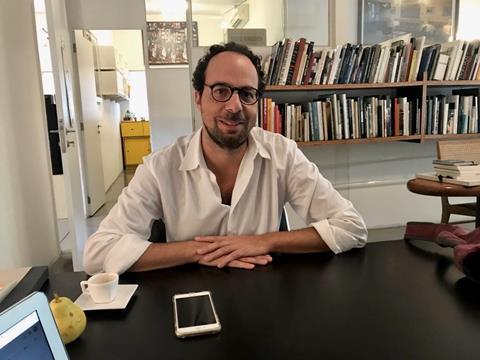
In a year particularly good for Brazilian films at major film festivals, thanks to the presence of Walter Salles’ I’m Still Here and Marianna Brennand’s Manas, the last 2024 mission of the export programme Cinema do Brasil is Ventana Sur, taking place from December 2 – 6 for the first time in Montevideo, the capital of Uruguay.
As one of the leading film and audiovisual markets in Latin America, the programme dedicated to the global promotion of Brazilian cinema will focus on bringing the country closer to its neighbours, encouraging co-productions.
“Ventana Sur is one of the highlights of our schedule, along with Cannes and Berlin,’’ says Morris Kachani, Cinema do Brasil’s executive manager. “It is the largest event of its kind in our region and it is endorsed by the Marché du Film. It is Latin America’s window to the world.”

Since opening in 2006, Cinema do Brasil, created and managed by Sao Paulo State Audiovisual Industry Association (SIAESP), in collaboration with the Brazilian Trade and Investment Promotion Agency (ApexBrasil), estimates it has generated a total business volume of $97m. This has been through the promotion of the sales and distribution of Brazilian films overseas for both theatrical or streaming release, as well as through co-productions.
Its efforts have resulted in an increase in the number of co-productions, rising from 11, registered in 2006, to this year’s 48 projects, according to national film agency Ancine.
Cinema do Brasil has invested approximately BRL 600.000 ($102,500) in this year’s Ventana Sur, where 38 Brazilian companies, from various cities (including São Paulo, Rio de Janeiro, Recife, Brasília, Salvador and Porto Alegre), will be present. The programme will create new opportunities for Brazilian producers to find partners from the countries with which they have a geographical and cultural proximity and existing close economic relationships.
Historically, the Latin American country with which Brazilian producers have worked the most is Argentina. This is the second most sought-after nation by Brazilian producers in the overall ranking, behind only Portugal.
“Even though Brazil is the only Portuguese-speaking country in Latin America, audience resistance to other languages has been overcome in recent years. This is happening thanks to the streamers, which co-produce content in several countries and show it on their platforms globally,’’ says André Sturm, president of Cinema do Brasil.
Co-production and matchmaking meetings will be organised with Mexico (Imcine), Colombia (Proimagenes), Uruguay (Acau) and Chile (CinemaChile). Of these four countries, Chile is the one that already has a bilateral co-production agreement with Brazil, as do Argentina and Venezuela. Brazil is already a signatory to the Latin American Film Co-Production Agreement.
Confirming the attention that Brazilian films have attracted this year, several Brazilian projects have been selected by Ventana Sur itself.

Rafaela Camelo’s The Nature Of Invisible Things, produced by Moveo, is one of the recently completed fiction feature films to be screened at Copia Final, the section for titles in search of sales agents, distributors and international festival programmers.
Camila Padilha’s Jaé Natal - S’up, Xmas!, produced by Coqueirao. is part of the Animation! showcase, while Fight Clubs, produced by Faro Rio Entertainment, has been selected for the pitching workshop projects for the Latam Series Market. Blood Window, the sidebar devoted to horror and genre films from Latin America, will also host Luiza Shelling Tubaldini’s Love Kills, produced by FilmLand).
“Our participation in Ventana Sur consolidates a year of revitalisation of Brazilian cinema, with a new crop of films and projects which bring innovative ideas and echo the rich cultural diversity of our country,’’ says Kachani, using I’m Still Here and Manas as examples.

Winner of the best screenplay award in Venice, I’m Still Here is Brazil’s submission to the best international feature category at the US Academy Awards. Star Fernanda Torres has also emerged as a bona fide best actress contender playing a woman whose husband is captured during the Brazilian military dictatorship.
A disconcerting portrait of the sexual exploitation of children on Marajó Island, in northern Brazil, Manas was the winner of the best director award at Venice’s Giornate degli Autori sidebar.
Manas received funding via Paulo Gustovo Law, launched in 2023 as part of a suite of post-pandemic support created for the audiovisual industry.
“Both films reflect this moment of rise of Brazilian cinema,” as Kachani puts it.
Contact: Lucy Watanabe




























No comments yet